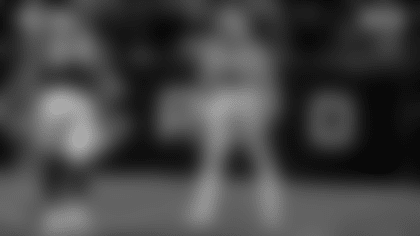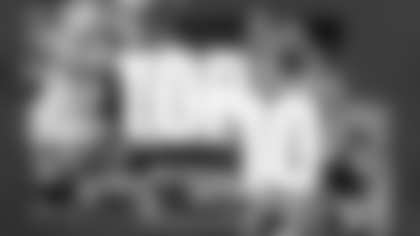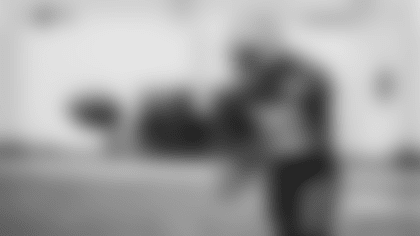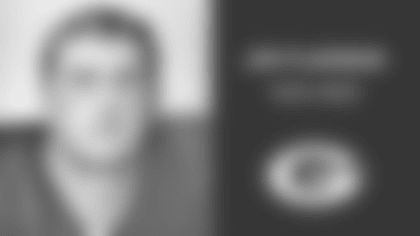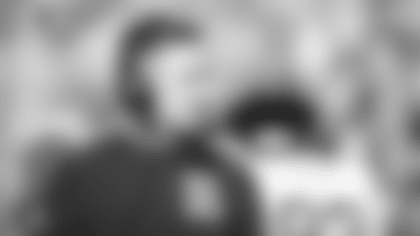Legendary Packers quarterback Bart Starr sat down with packers.com Editor Vic Ketchman recently, and talked about Green Bay, Coach Vince Lombardi, the Dallas Cowboys and, of course, the "Ice Bowl."
Q. What's it like for you to come back here to Green Bay and Lambeau Field?
A. It's great. We lived in this city for 31 years. It's just a joy. I've never been as comfortable, had as strong a feeling in our lives – my wife feels the same way – as in this community. It's just a wonderful place to be. People you are associating with, we just love them.
Q. How often do you think of the Ice Bowl?
A. I don't think that often of it, because you have so many other things in your life, but there are times when there's a playoff game or a championship game, or a situation that would bring that onto the scene for you to make a comment or reflect on it, and then you have a chance to talk on it, and it's just fun to do.
Q. What are your deep-down-inside memories of it?
A. The biggest thing I think about, when reflecting today, is the quality of the preparation for it. We recognized from our perspective, primarily because of the leadership of Coach Lombardi, the quality of the Dallas Cowboys. They were good. Many people have forgotten we beat them the year before, in Dallas. They were good that year, but the year of the Ice Bowl, the Dallas Cowboys were an outstanding team.
Q. Did you and Coach Lombardi ever talk later about the quarterback sneak call?
A. Just in a light nature, but I can tell you a quick story of how it came about. In preparing for the game, we had noted the Cowboys had developed what we labeled as a submarine technique on defense, meaning their charge by their defensive linemen was so low that you couldn't block them. All you could do was fall on them. That's how low they got out. We recognized that going into the game and seeing it and so forth, and commented on what a great pattern of efficiency had been developed by the Cowboys. It was good, and we saw it on display in short yardage, so what we had developed in preparing for that game was the play we ultimately ran, because as good as they were at that submarine technique, there was one player on the defensive line who couldn't do it. He was too tall; he couldn't get down that low. That's Jethro Pugh. When we saw it, we planned this wedge play. If we could run a wedge play on Jethro Pugh, because of his high charge, we knew we could knock him well back and get whatever yardage, and that was coming true to form because out in the field, two other times in the game in short yardage, we had run that wedge play at Jethro Pugh and it gained a minimum of four yards. We knew the play would work. It became even worse because, if we were getting down late in the game, having that shadow cast by the giant scoreboard in the south, the ground had become as hard as this table top, and it was slick. It was a very difficult situation.
Q. What if you hadn't scored? Have you ever thought about that?
A. No. We felt like we could because of what I was telling you about the wedge play. We knew the play would work. What we had to do was make sure we could get our footing. We had run the play twice already with Chuck Mercein carrying it. He was slipping and sliding and not getting back to the line of scrimmage well. That's when I called time out and asked our linemen, "Can you get your footing for one more wedge play?" They said yes. I ran to the sideline and said, coach, there's nothing wrong with the play. The problem is the ground is so hard that the fullback can't get his footing, and he's slipping and sliding getting up there. I said I'm standing upright. I can just kind of shuffle my feet and then lunge in. Typically of Coach Lombardi, he said, "Then run it and let's get the hell out of here." That's how he said it to me. I'm laughing going back to the huddle, and I don't want the Cowboys to see me laughing.
Q. Did he really say then run it and let's get the hell out of here?
A. Yeah, he did.
Q. Why do you think he left Green Bay?
A. I don't know why he left. He just chose that it was time to make a change in his life, and he chose to do that. If you're going to do that, I think you do it after a game like that because it's a momentous occasion for you.
Q. All of the success he had here, do you think he enjoyed it as much … ?
A. Yes. I had been in meetings with him after that and sensing his disposition and attitude, I would certainly say yes.
Q. What does it all mean to you?
A. It's meant a great deal. You have to think about how fortunate you are and how blessed you are to have been there at that time and to have been a part of that kind of happening. All of us who were a part of it, still feel that way today.
Q. When you're in the players' entrance area and see your retired jersey with the others, what's that like for you?
A. It's a great thrill, a great deal of personal pride and gratitude for someone taking the time to honor you by doing something like that. That's a nice gesture on their part.




